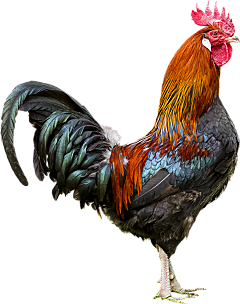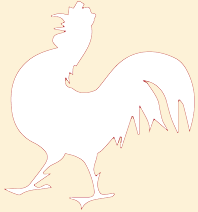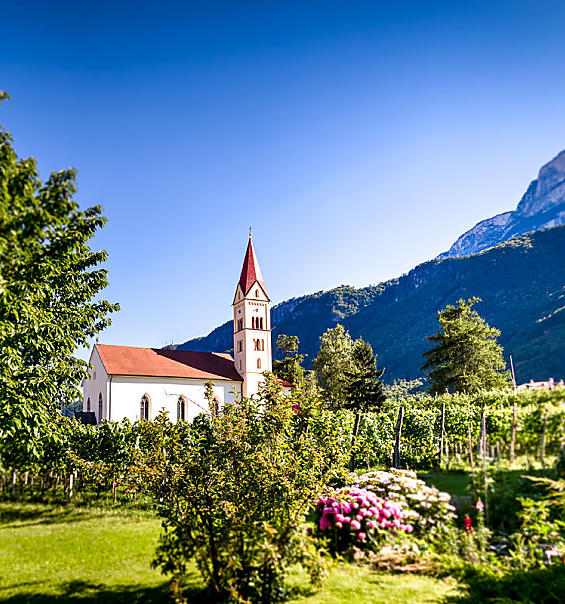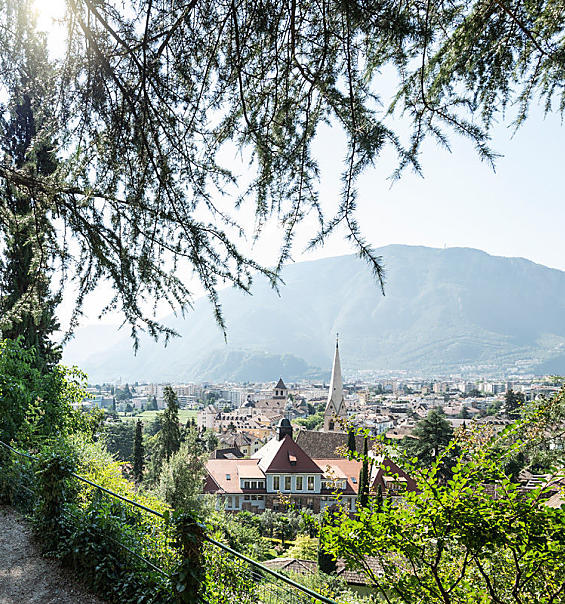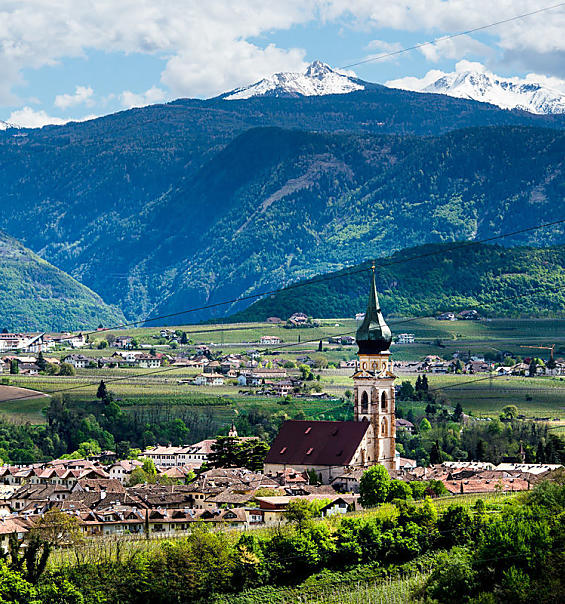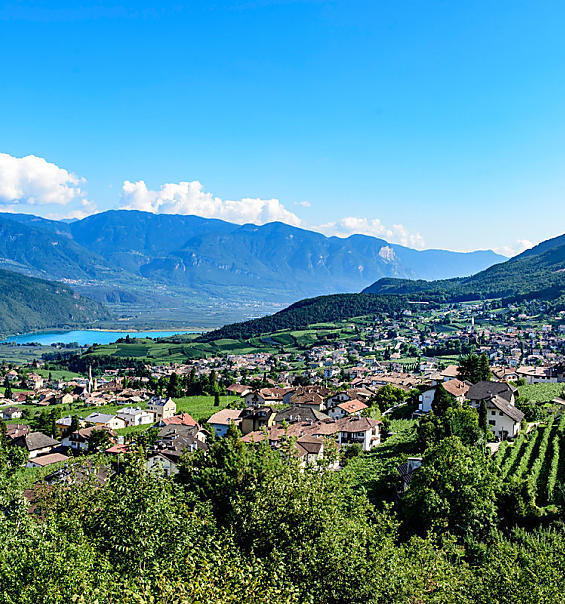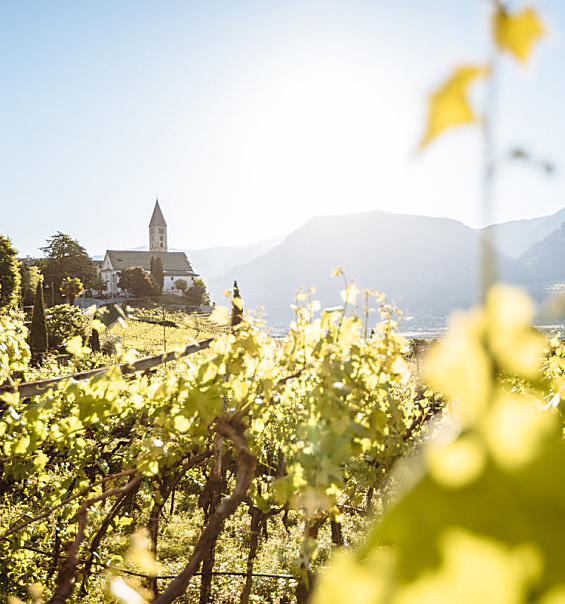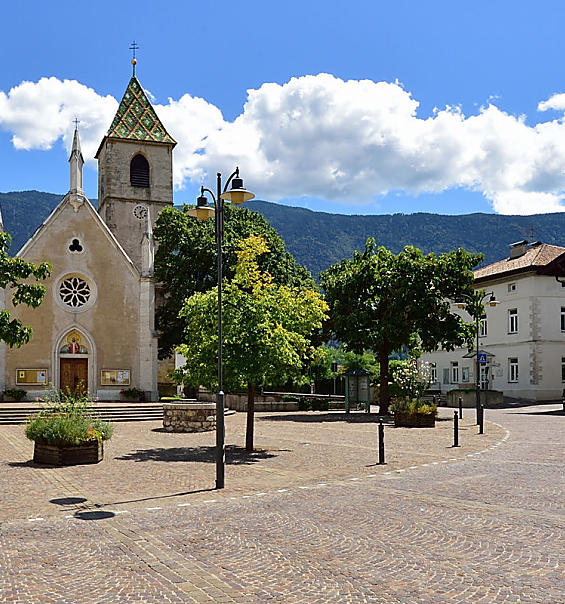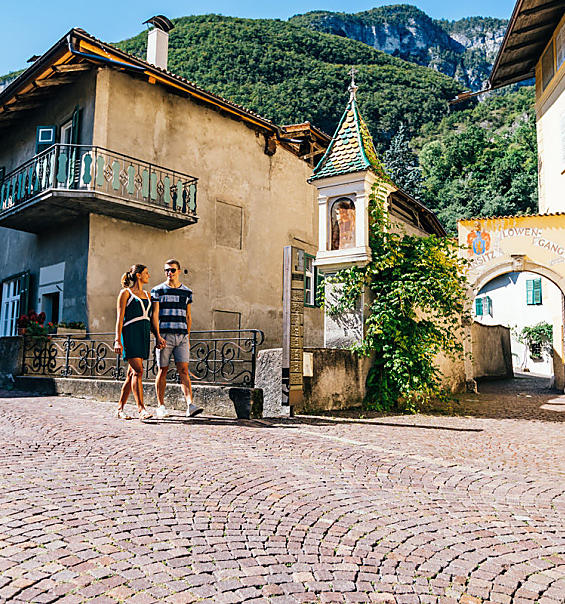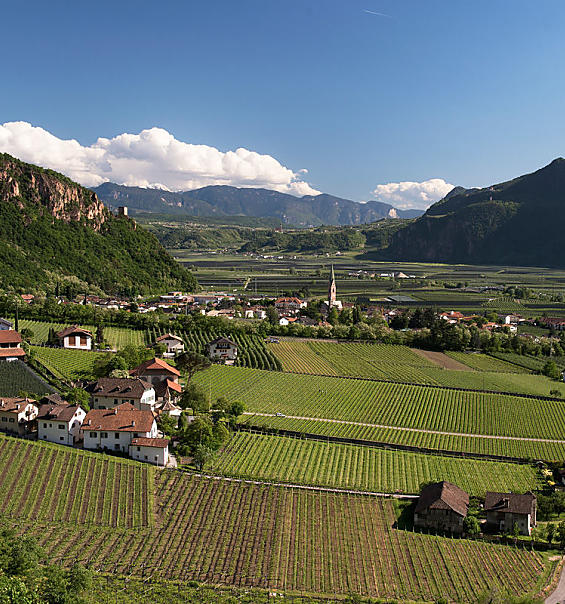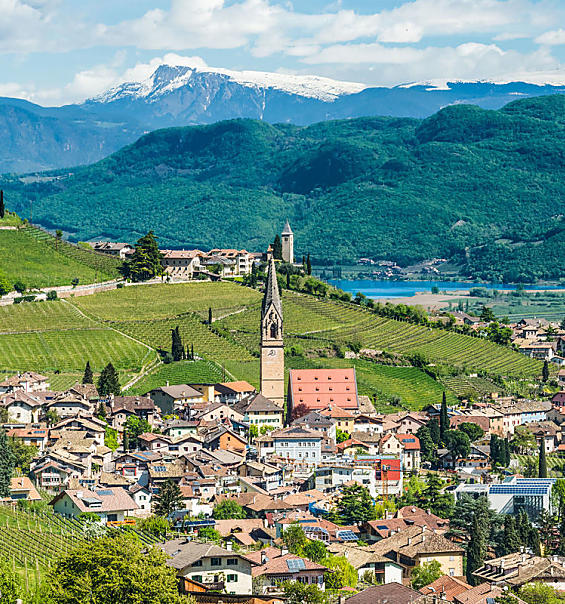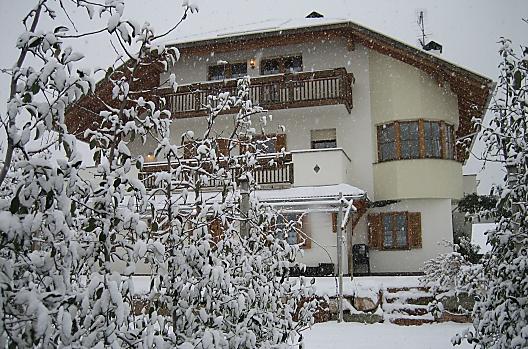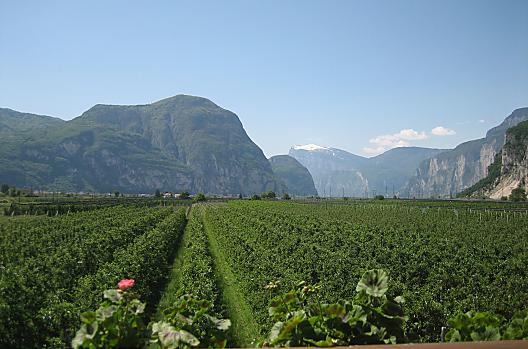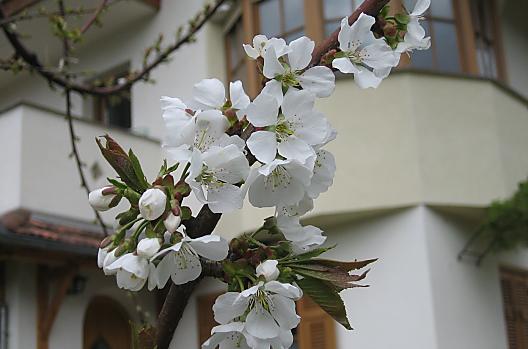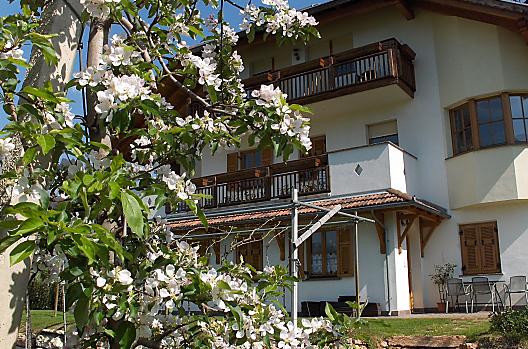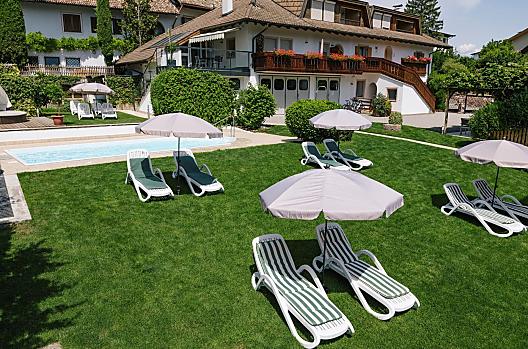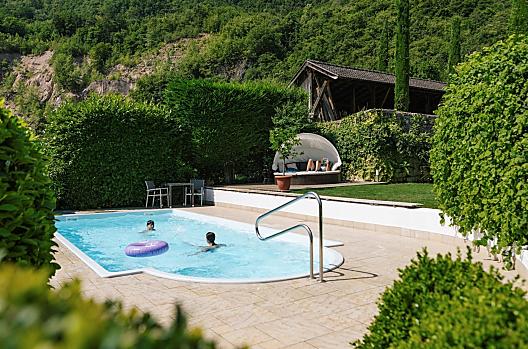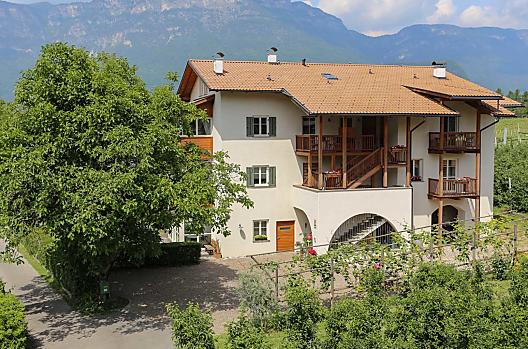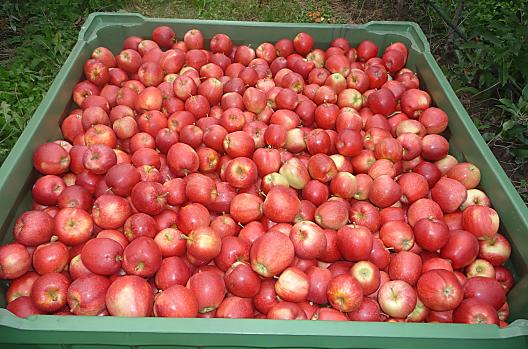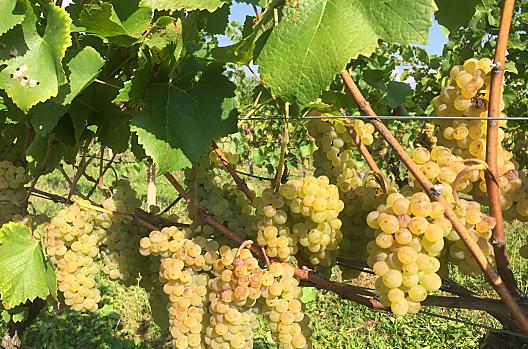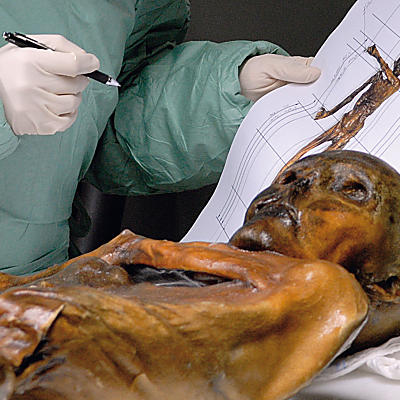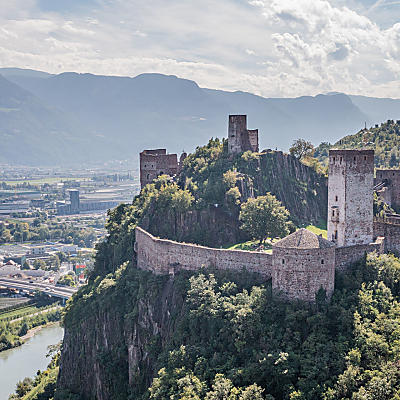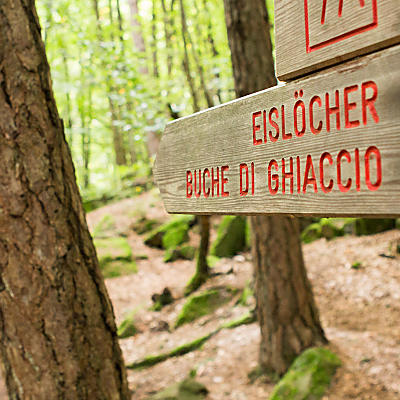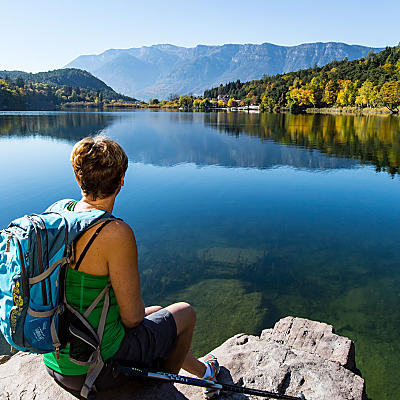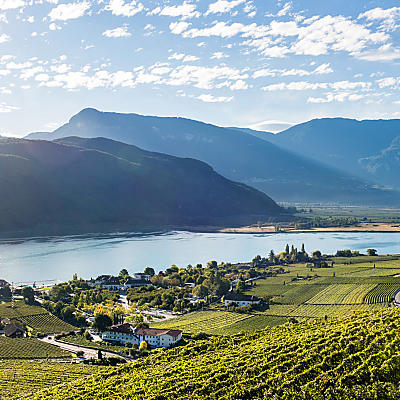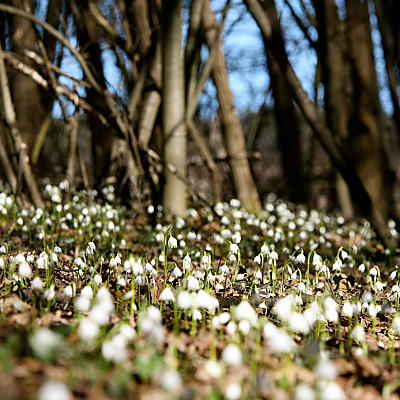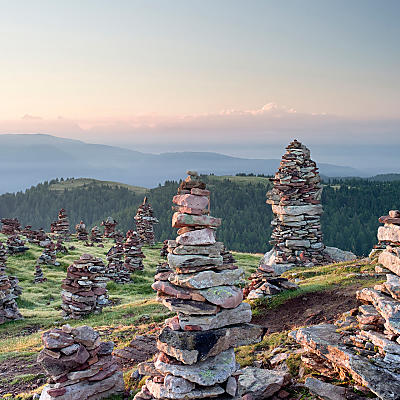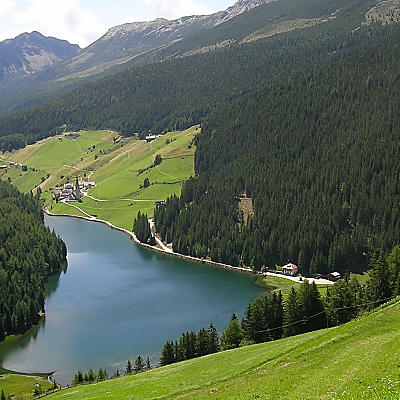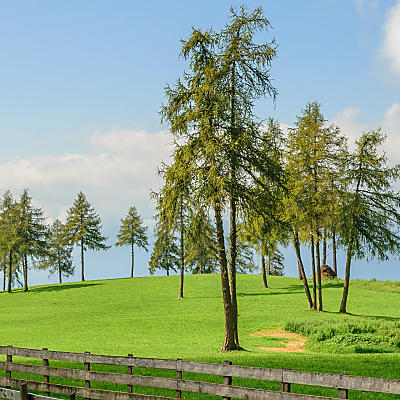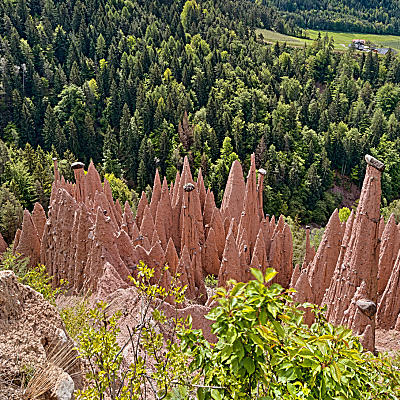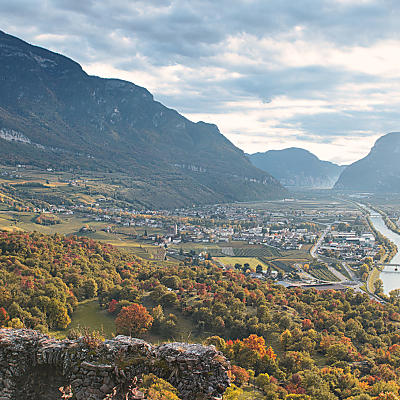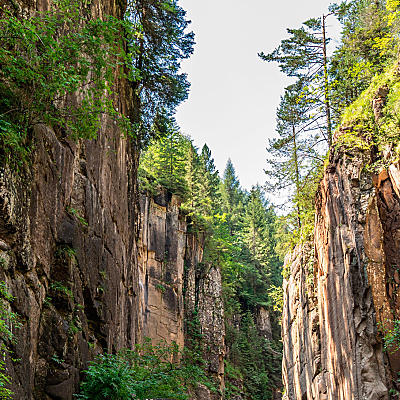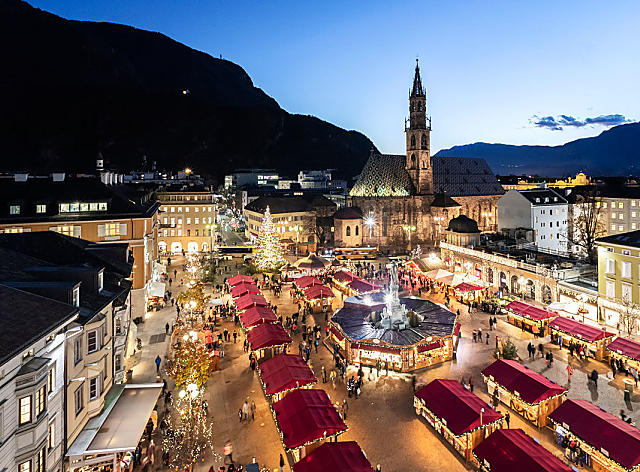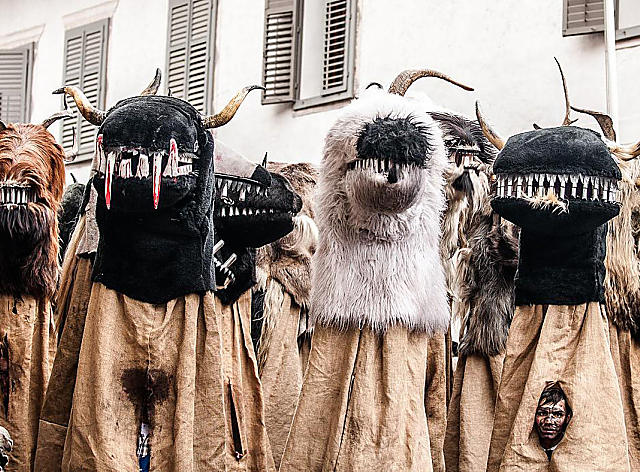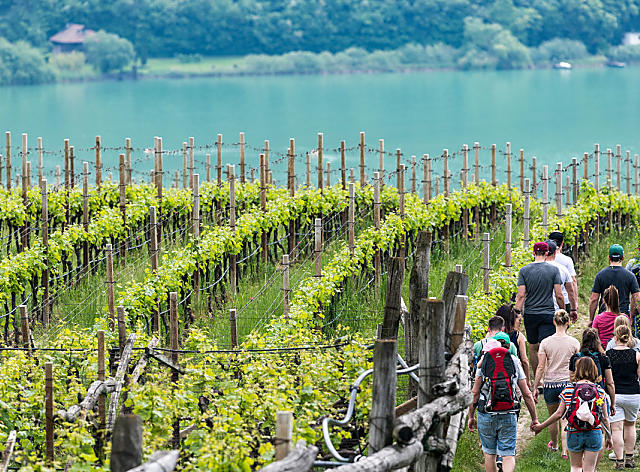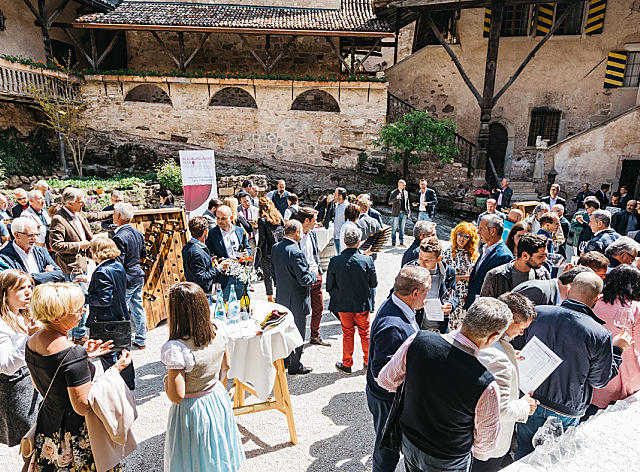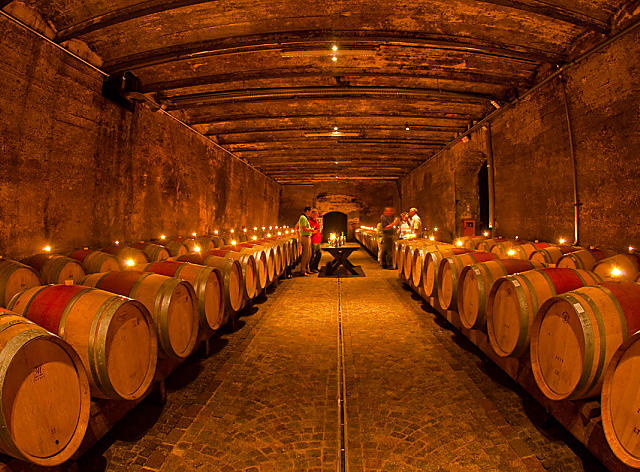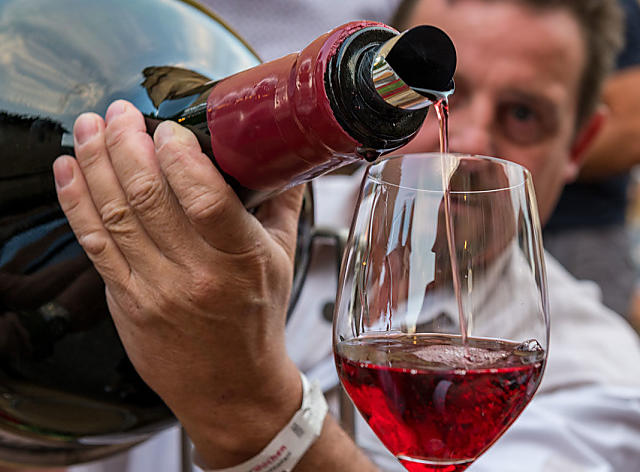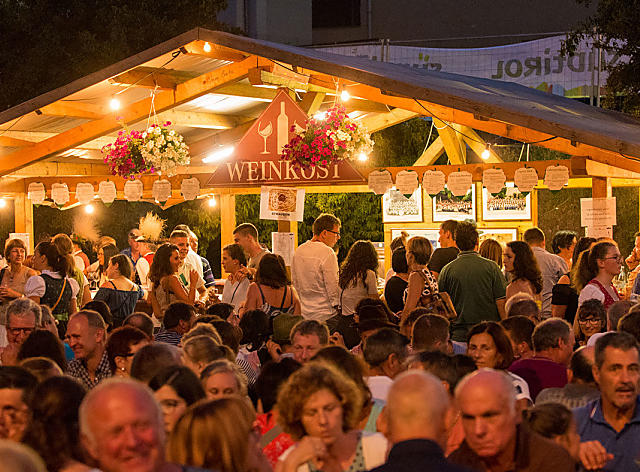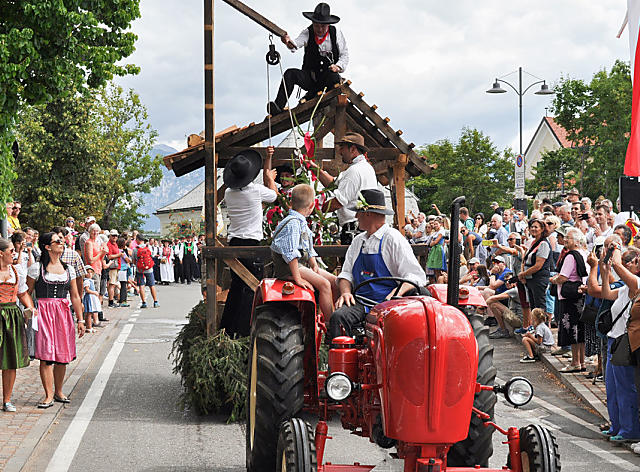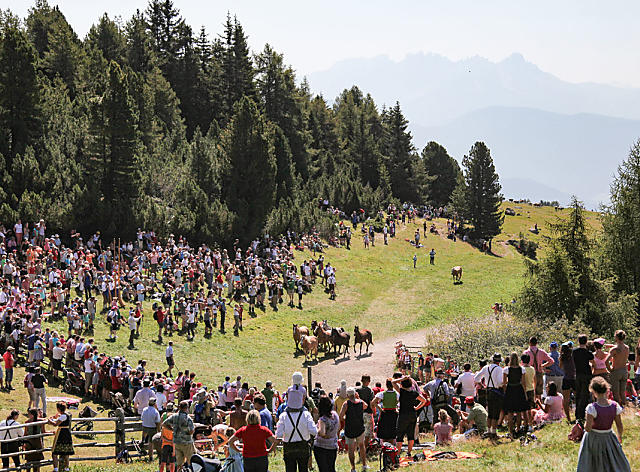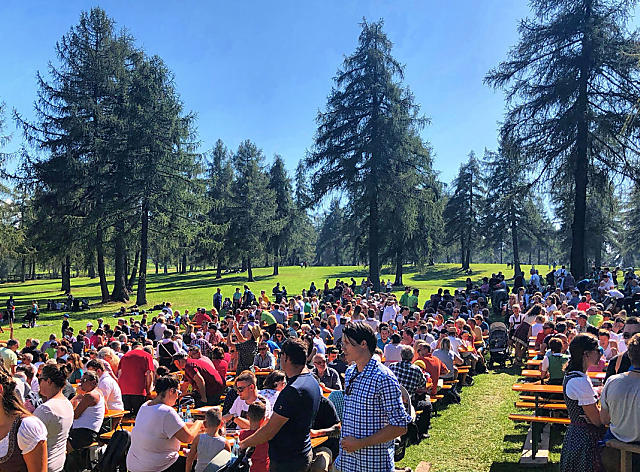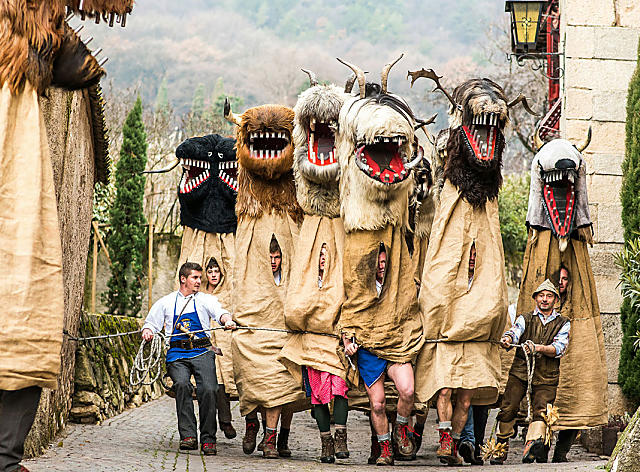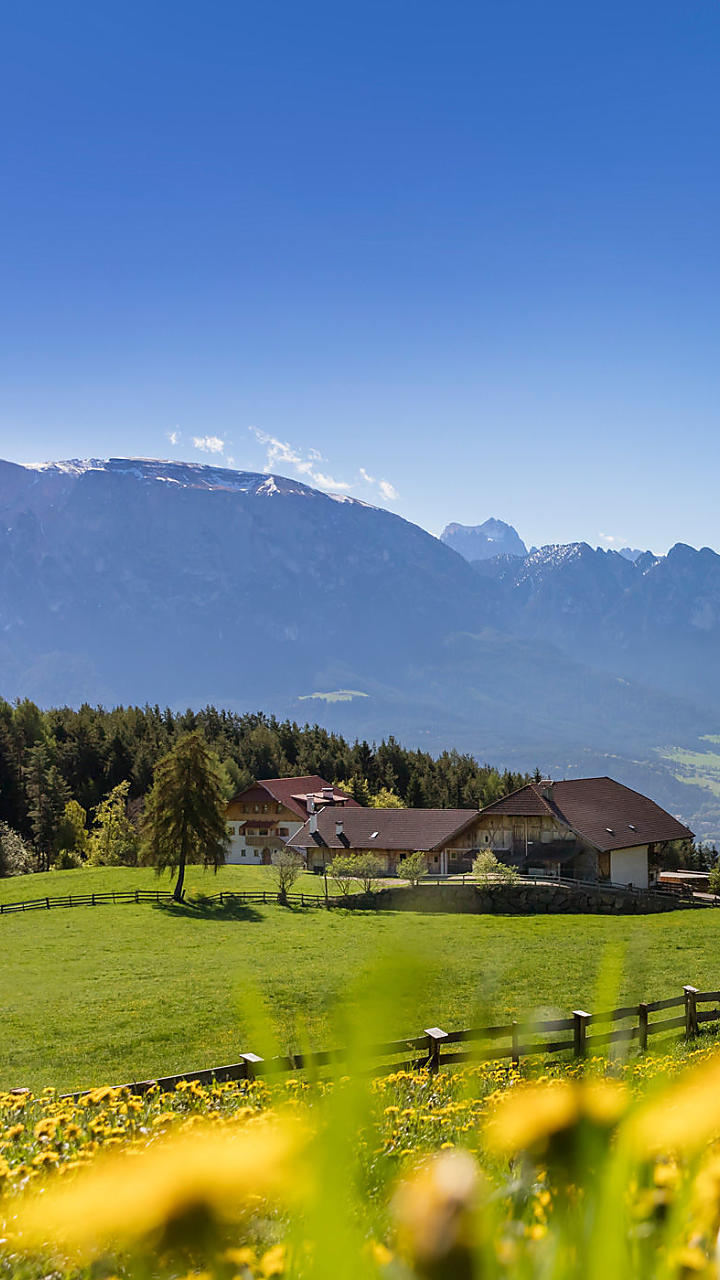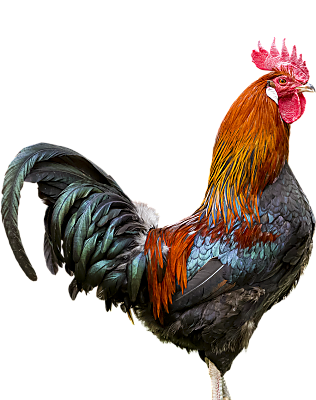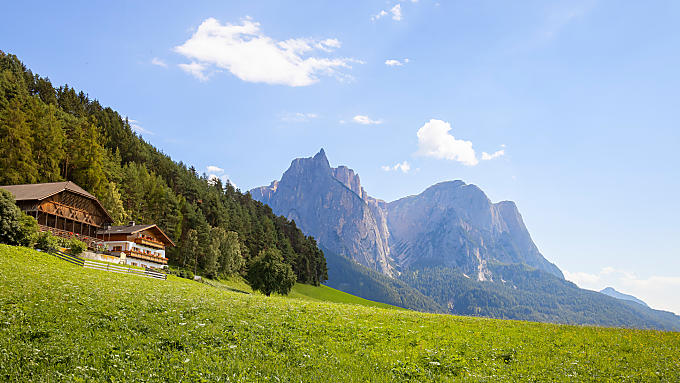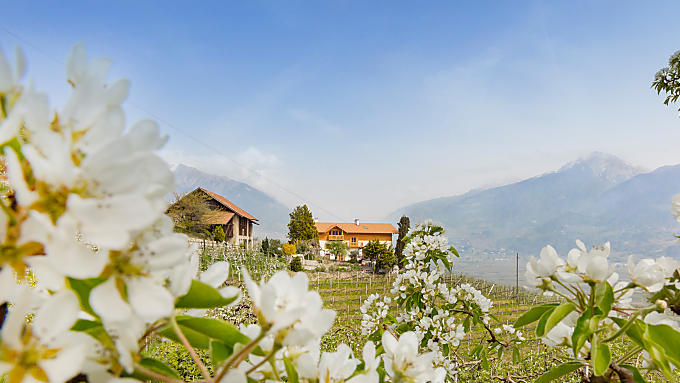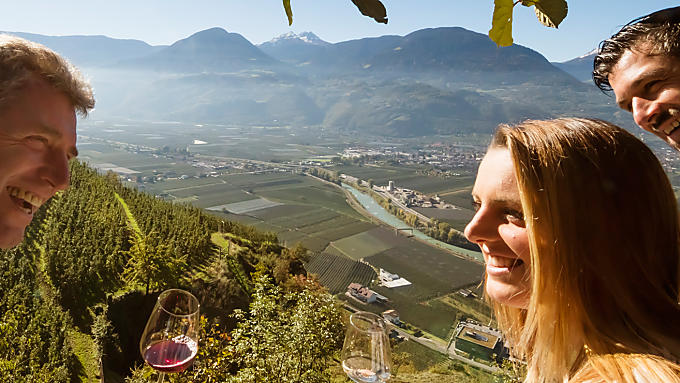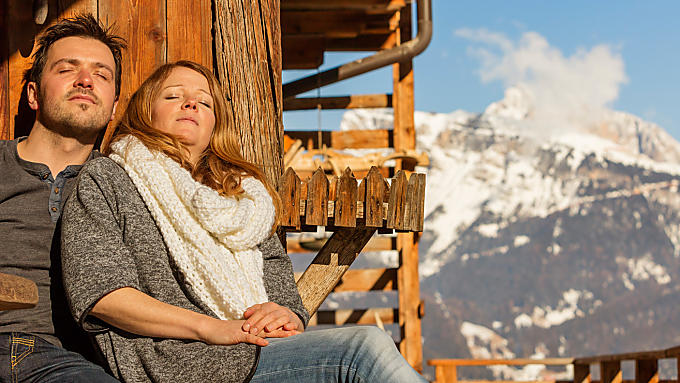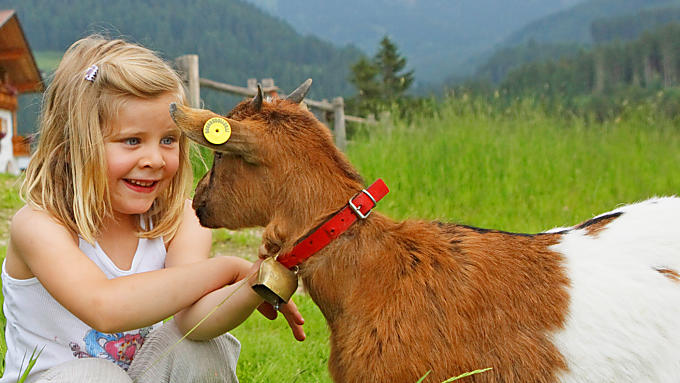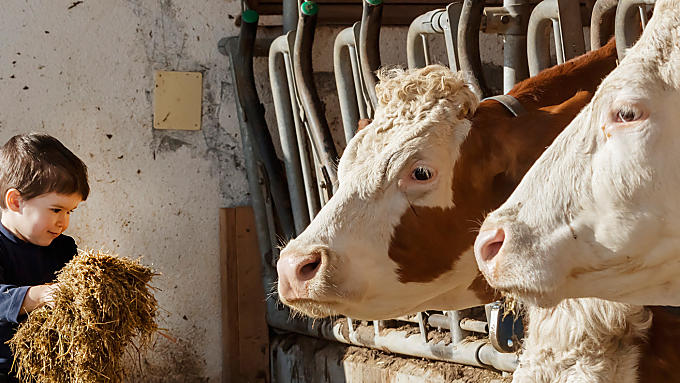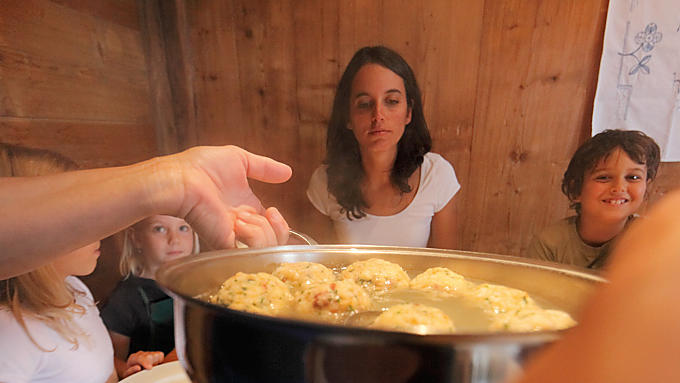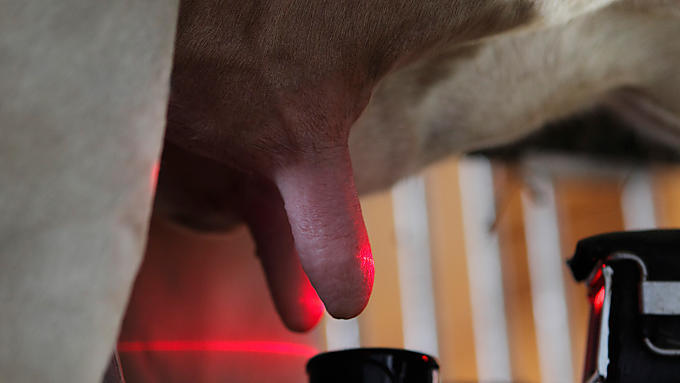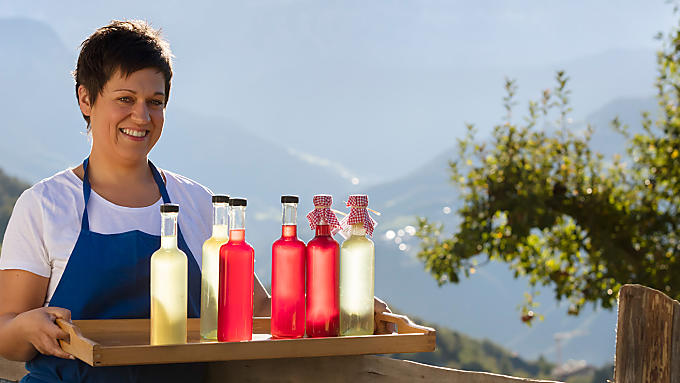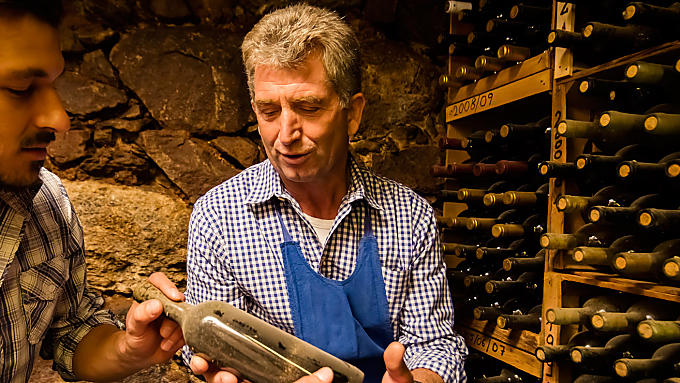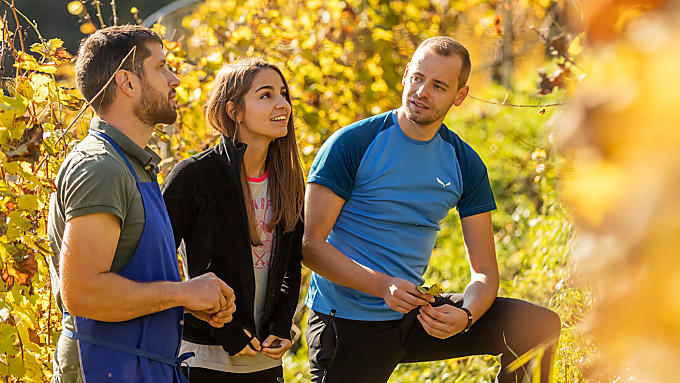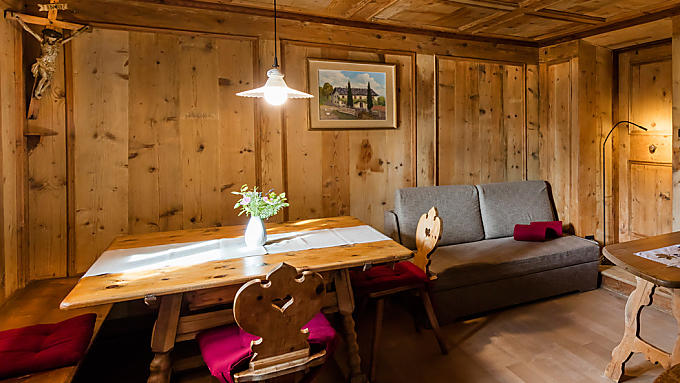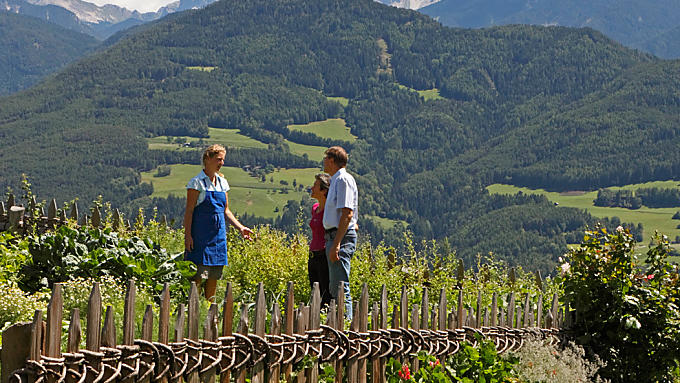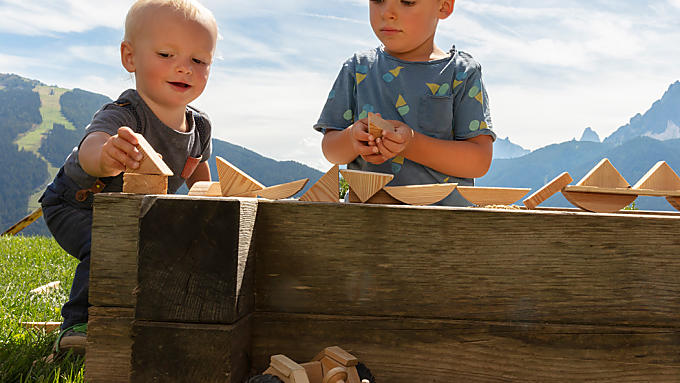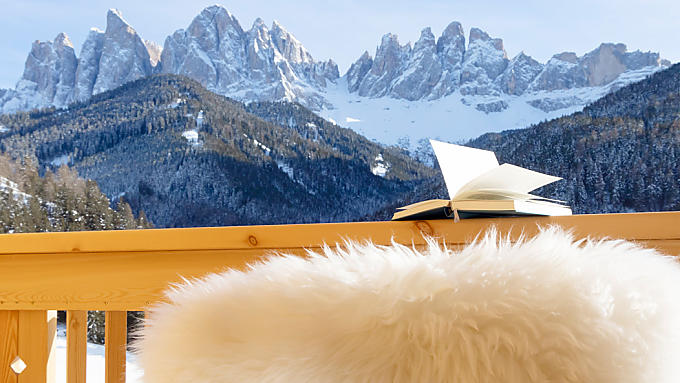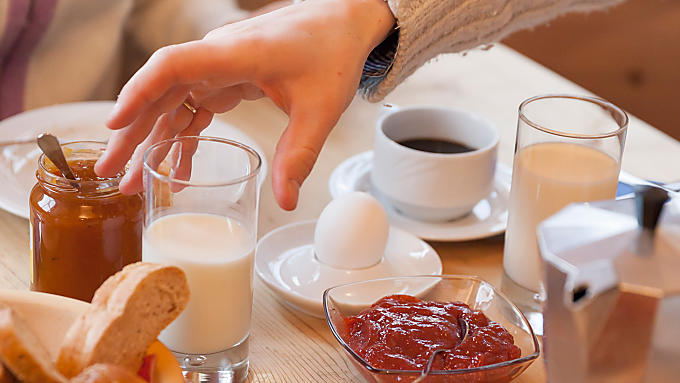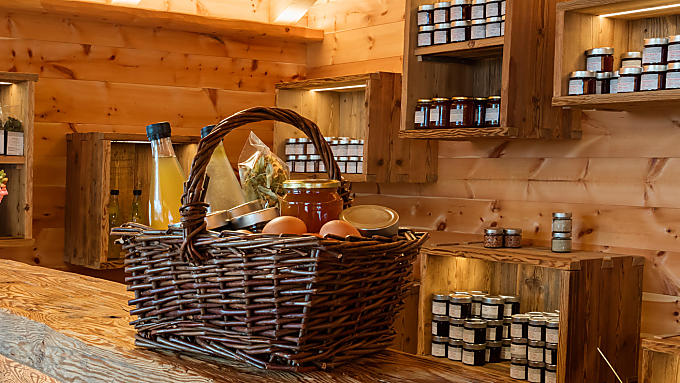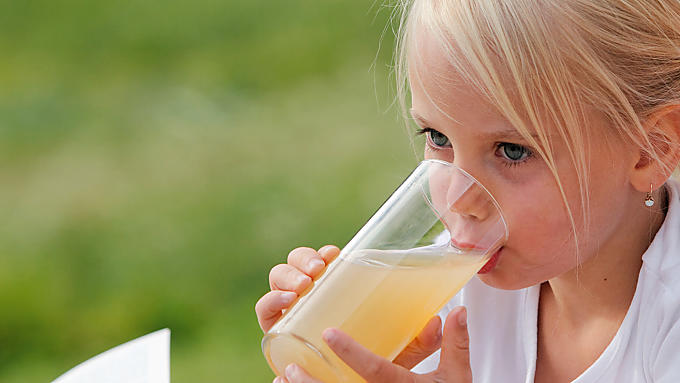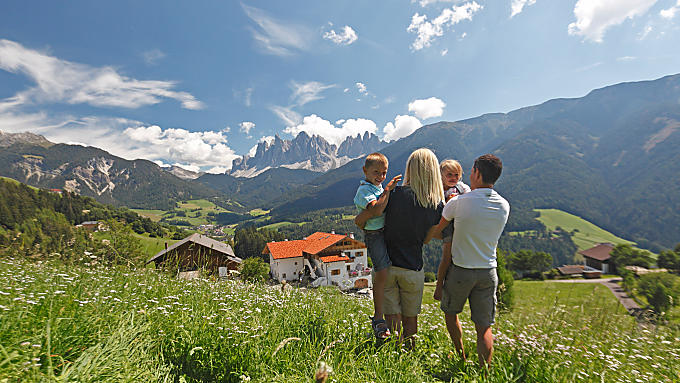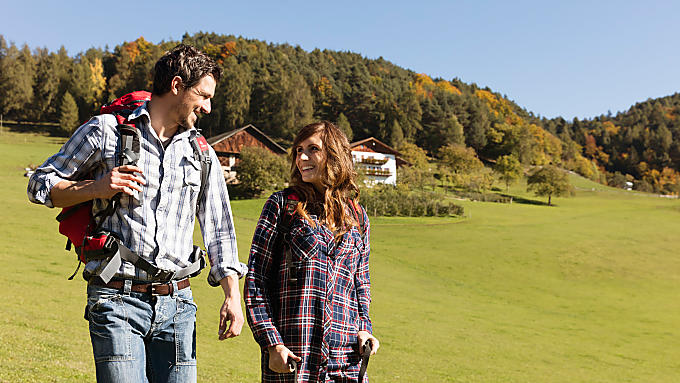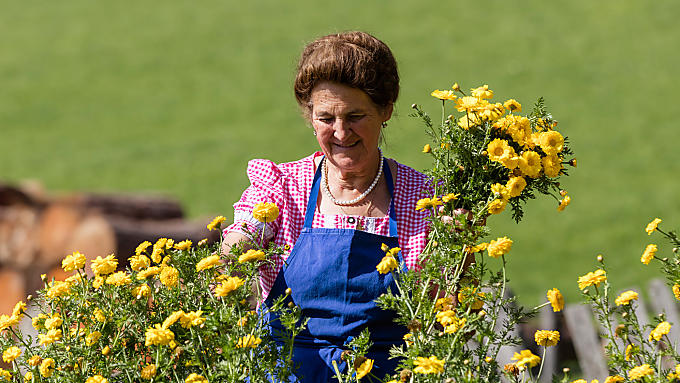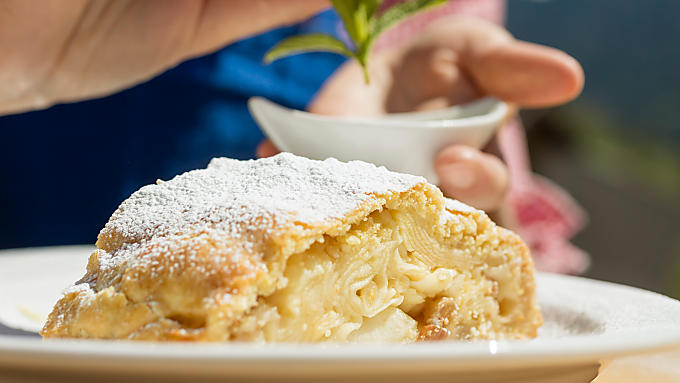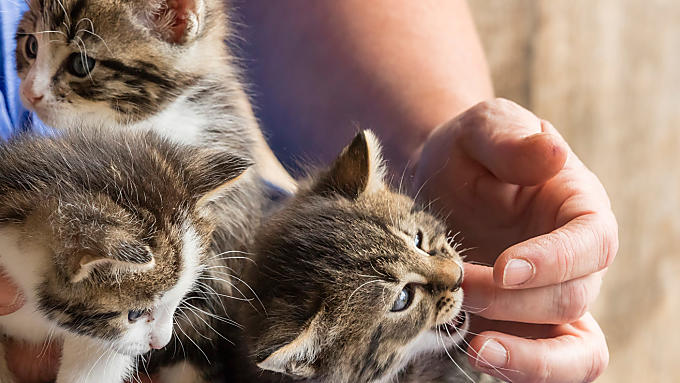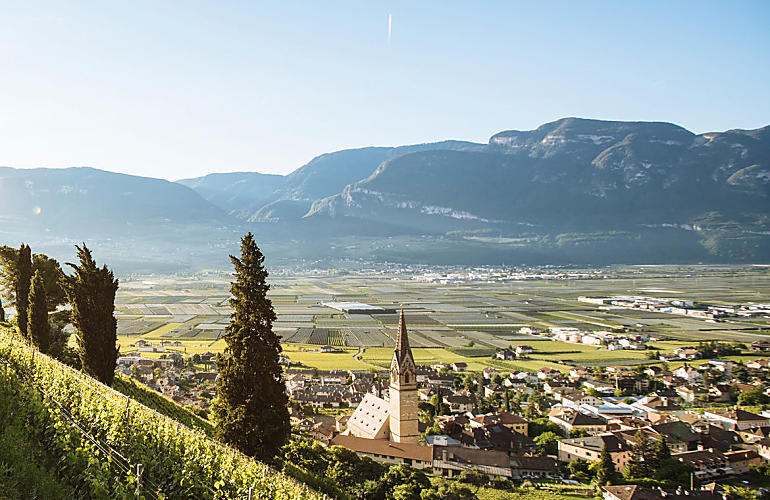
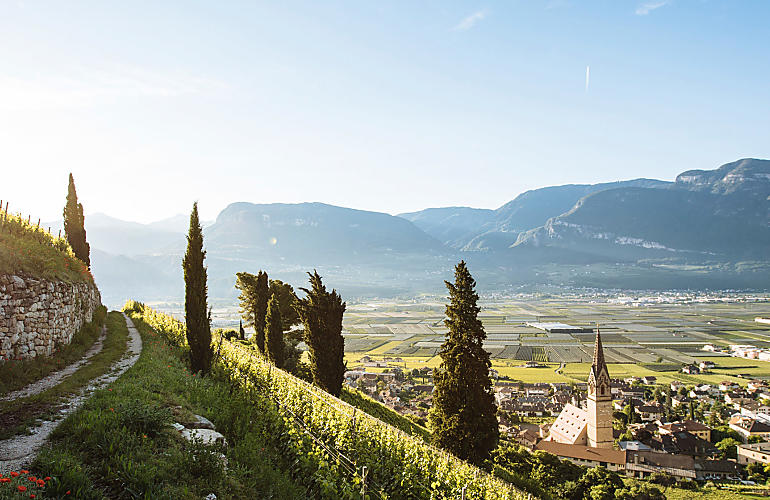
In vino veritas
A place of adventure
Farm Holidays in the South Tyrol Wine Road
On a Farm Holiday on the South Tyrol Wine Road you'll discover the real meaning of the Latin motto 'in vino veritas'.
This famous wine saying is usually translated as 'There is truth in wine'. On a holiday on the South Tyrol Wine Road, you can discover the other side of the translation i.e. 'Wine is the only truth'. As the name says, wine is the symbol of this part of South Tyrol, which features municipalities in the Überetsch and Unterland area as well as the province capital of Bozen.
On a Farm Holiday on the South Tyrol Wine Road you'll discover the real meaning of the Latin motto 'in vino veritas'.
This famous wine saying is usually translated as 'There is truth in wine'. On a holiday on the South Tyrol Wine Road, you can discover the other side of the translation i.e. 'Wine is the only truth'. As the name says, wine is the symbol of this part of South Tyrol, which features municipalities in the Überetsch and Unterland area as well as the province capital of Bozen.
84 percent of the total vines in South Tyrol grow here, in the South of South Tyrol, as well as some of the best red and white wines in Italy over an area of 42.5 square metres. And wine is not just a luxury here, but a way of life that finds expression in a connection with nature and cultural awareness.
Climbing plants
Just viewing the landscape, you are struck by the influence exerted by wine farming. The numerous farmhouses, many of which offer Farm Holidays, are usually surrounded by extensive vineyards. The vines do not just cover the valley basin with the Etsch river running through it, but live up to their reputation as climbing plants. Even on the steepest slopes along the South Tyrol Wine Road there are vineyards. Arching over these are forested mountain ridges that look forbidding from beneath, but are by no means indomitable. This is because the countryside on the South Tyrol Wine Road is very well connected with hiking and cycle paths. There's nothing to rule out a tour on the Mendelpass ridge, the Fennberg mountain or along the Tramin high altitude path except possibly fitness levels. Anyone finding the mountain air a little on the thin side is not obliged to stay in their holiday flat or room on the South Tyrol Wine Road. The area has the advantage of featuring a number of natural wonders at an altitude not exceeding 500 metres.
High points at the deepest level
Montiggl Wald forest near Eppan, where the dream-like Montiggl See lakes are nestling, makes a good trip for cyclists and hikers. Not far off is the cradle of spring, colourful 'Frühlingstal' valley, which is in full bloom as early as the start of March. As well as offering a dip in the refreshing waters after a day in the bike saddle, windsurfers will find ideal weather conditions on Kalterer See lake. The 'Eislöcher', or 'Ice Holes', at Eppan, where wintry temperatures prevail even in summer and vegetation goes topsy turvy, promise a different kind of refreshment. And it's not just the countryside that has a lot to offer - the local people have immortalised themselves in the landscape, too.
Historical meeting point
The cultural landscape of the South Tyrol Wine Road indicates a rich heritage. Chapels, such as Gleifklirchlein, rise up on hilltops visible for miles around. Their neighbours are old fortresses, castles and ruins. The rocks and slopes around Eppan are dominated by 180 country houses and castles – hardly any other region in Europe can boast such a concentration of castles. In the valley, on the other hand, you come across traditional villages at every turn with centres bearing the signature of the Tuscan or Überetsch architectural style. In the municipality of Kaltern alone, there are 119 listed buildings. All year round, the village centres provide a suitable backdrop for old festivals and customs such as the Egetmann Procession in Tramin, the Asparagus Festival in Terlan or the 'Altmauerfest' in Auer. The South Tyrol Wine Road does not just show its venerable nature in its customs, but a variety of museums tell of the development of the area. Most of these are to be found in the province capital of Bozen: Ötzi, the world-famous glacier mummy, is housed in the Archaeology Museum, Museion is the place to go for modern art in South Tyrol and the Victory Monument broaches the issue of the suppression of the German-speaking population under Italian fascism.
A toast in honour
Wine growing is an age-old, even pre-Roman tradition on the South Tyrol Wine Road, which is why wine is not just symbol, but honorary citizen of the area. Most village wine cellars hold tasting sessions, including the one in Andrian, which is the oldest in the whole of South Tyrol. Wine educational trails such as at Entiklar near Kurtatsch and in the Wine Museum in Kaltern impart interesting information on the juice of the vine. It is also duly celebrated in the shape of many events focussing on local grapes, including 'Spatium Pinot Blanc' in Eppan, the 'Kalterer Weintage' and the 'Weinstraßenfest' celebrating the Gewürztraminer grape, to list just three.
Why you should take a Farm Holiday on the South Tyrol Wine Road:
- Lots of lower-lying natural beauty spots
- Fortresses, castles and country houses dot the landscape
- A lively wine tradition and southern joie de vivre
84 percent of the total vines in South Tyrol grow here, in the South of South Tyrol, as well as some of the best red and white wines in Italy over an area of 42.5 square metres. And wine is not just a luxury here, but a way of life that finds expression in a connection with nature and cultural awareness.
Climbing plants
Just viewing the landscape, you are struck by the influence exerted by wine farming. The numerous farmhouses, many of which offer Farm Holidays, are usually surrounded by extensive vineyards. The vines do not just cover the valley basin with the Etsch river running through it, but live up to their reputation as climbing plants. Even on the steepest slopes along the South Tyrol Wine Road there are vineyards. Arching over these are forested mountain ridges that look forbidding from beneath, but are by no means indomitable. This is because the countryside on the South Tyrol Wine Road is very well connected with hiking and cycle paths. There's nothing to rule out a tour on the Mendelpass ridge, the Fennberg mountain or along the Tramin high altitude path except possibly fitness levels. Anyone finding the mountain air a little on the thin side is not obliged to stay in their holiday flat or room on the South Tyrol Wine Road. The area has the advantage of featuring a number of natural wonders at an altitude not exceeding 500 metres.
High points at the deepest level
Montiggl Wald forest near Eppan, where the dream-like Montiggl See lakes are nestling, makes a good trip for cyclists and hikers. Not far off is the cradle of spring, colourful 'Frühlingstal' valley, which is in full bloom as early as the start of March. As well as offering a dip in the refreshing waters after a day in the bike saddle, windsurfers will find ideal weather conditions on Kalterer See lake. The 'Eislöcher', or 'Ice Holes', at Eppan, where wintry temperatures prevail even in summer and vegetation goes topsy turvy, promise a different kind of refreshment. And it's not just the countryside that has a lot to offer - the local people have immortalised themselves in the landscape, too.
Historical meeting point
The cultural landscape of the South Tyrol Wine Road indicates a rich heritage. Chapels, such as Gleifklirchlein, rise up on hilltops visible for miles around. Their neighbours are old fortresses, castles and ruins. The rocks and slopes around Eppan are dominated by 180 country houses and castles – hardly any other region in Europe can boast such a concentration of castles. In the valley, on the other hand, you come across traditional villages at every turn with centres bearing the signature of the Tuscan or Überetsch architectural style. In the municipality of Kaltern alone, there are 119 listed buildings. All year round, the village centres provide a suitable backdrop for old festivals and customs such as the Egetmann Procession in Tramin, the Asparagus Festival in Terlan or the 'Altmauerfest' in Auer. The South Tyrol Wine Road does not just show its venerable nature in its customs, but a variety of museums tell of the development of the area. Most of these are to be found in the province capital of Bozen: Ötzi, the world-famous glacier mummy, is housed in the Archaeology Museum, Museion is the place to go for modern art in South Tyrol and the Victory Monument broaches the issue of the suppression of the German-speaking population under Italian fascism.
A toast in honour
Wine growing is an age-old, even pre-Roman tradition on the South Tyrol Wine Road, which is why wine is not just symbol, but honorary citizen of the area. Most village wine cellars hold tasting sessions, including the one in Andrian, which is the oldest in the whole of South Tyrol. Wine educational trails such as at Entiklar near Kurtatsch and in the Wine Museum in Kaltern impart interesting information on the juice of the vine. It is also duly celebrated in the shape of many events focussing on local grapes, including 'Spatium Pinot Blanc' in Eppan, the 'Kalterer Weintage' and the 'Weinstraßenfest' celebrating the Gewürztraminer grape, to list just three.
Why you should take a Farm Holiday on the South Tyrol Wine Road:
- Lots of lower-lying natural beauty spots
- Fortresses, castles and country houses dot the landscape
- A lively wine tradition and southern joie de vivre
The place at a glance
The South Tyrolean Wine Road
Farm search
Holiday farms on the South Tyrol Wine Road
Highlights & events
Sheer variety on the South Tyrol Wine Road
Highlights
Events

